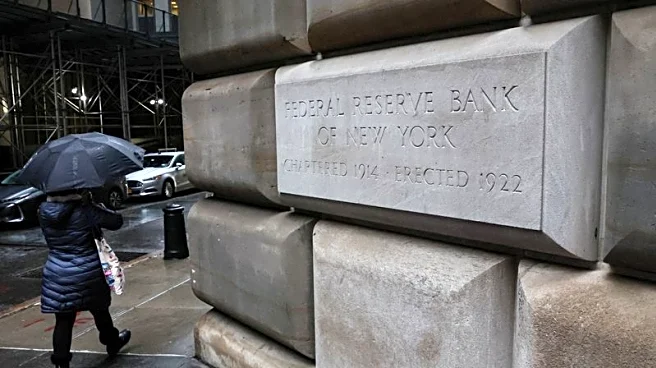What's Happening?
The Trump administration has ended the US duty-free imports of packages worth less than $800, known as the 'de minimis' exemption. This change, effective from Friday, means that shipments from global sellers to US consumers will now face tariffs, potentially leading to higher prices. The move expands a previous decision to impose tariffs on shipments from China and Hong Kong, affecting retailers like Shein and Temu. The administration argues that the exemption facilitated the entry of fentanyl into the country and gave an unfair advantage to foreign e-commerce companies. US retailers and industry groups have opposed the exemption, claiming it made merchandise at stores like Walmart and Target more expensive compared to foreign sellers.
Why It's Important?
The repeal of the de minimis exemption is significant as it impacts the cost of goods for US consumers, potentially leading to higher prices for items previously imported duty-free. This change could affect small US businesses that rely on overseas suppliers, as they may face increased costs and paperwork. The move is part of a broader strategy to level the playing field for US retailers against foreign e-commerce companies. It also addresses concerns about the ease of importing illegal substances under the exemption. The decision could lead to a shift in consumer behavior and impact the operations of international postal services.
What's Next?
The new tariff regime will require sellers to provide detailed information on the origin and type of goods in packages, increasing paperwork. E-commerce giants like Shein and Temu have had time to adapt to the change, but smaller businesses may struggle to absorb the tariffs. Platforms like eBay and Etsy are advising sellers to communicate with customers about potential price increases. The change may also lead to disruptions in postal services worldwide as they adapt to the new requirements.











